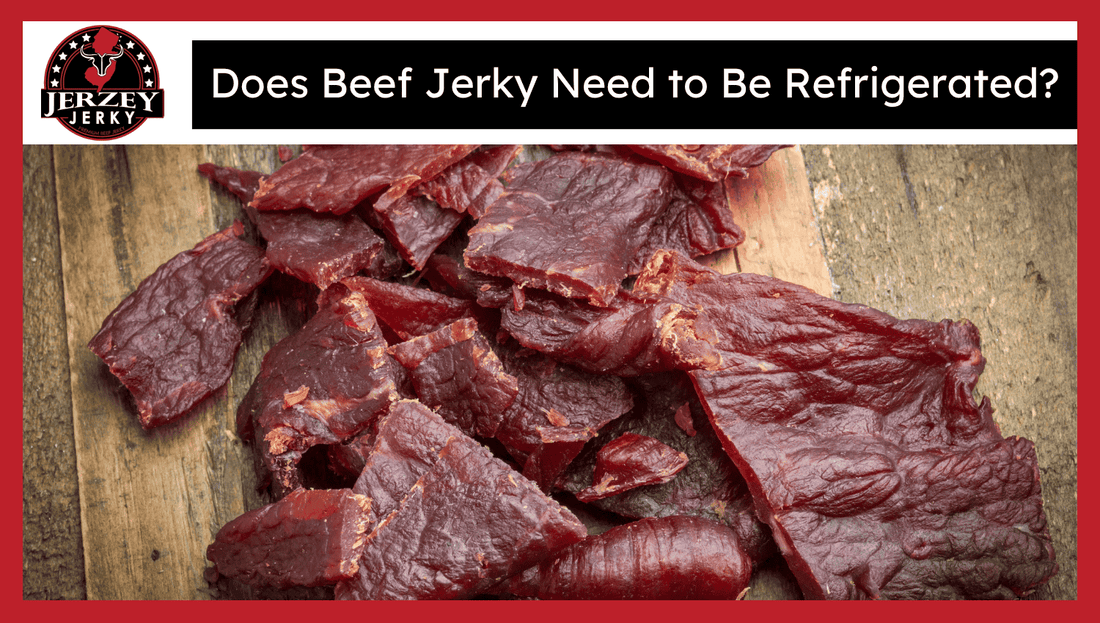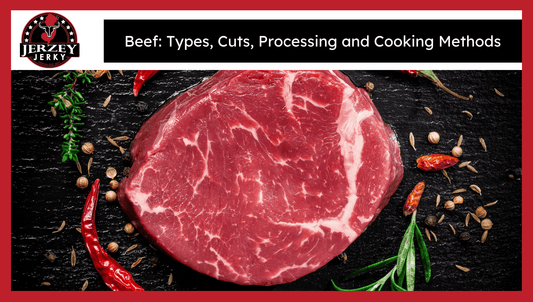
Does Beef Jerky Need to Be Refrigerated?
Refrigeration is not necessary in beef jerky when vacuum-packed or nitrogen-packed. This packaging eliminates oxygen and lessens moisture, thus it decelerates the growth of bacteria. Jerky with shelf-stable life survives 12 months. Never use a product that has a wrong expiration date as indicated by the manufacturer.
Once opened, jerky takes in moisture from the air. During 2-3 days, the activity of bacteria grows. In order to preserve it, put the opened jerky container in a closed container in the fridge. Homemade jerky is more moist and must be refrigerated within 48 hours or it goes rancid.
The Meat Science Department of Kansas State verified that dried meats having a water activity of less than 0.85 are resistant to microbial growth and have a longer storage service life. Commercial brands undergo rigorous approaches in dehydration and packaging to attain this degree.
Unrefrigerated, opened or homemade jerky spoils out of freshness and develops mold. Once the jerky is opened, always put it away in a safe manner and retain some taste.

When Should You Refrigerate Beef Jerky?
Here are two of the most typical cases when it is better to store beef jerky in the refrigerator:
- Purchased Jerky: Purchase jerky that keeps fresh when kept inside a plastic bag or other package in the refrigerator. Several days of Cold storage retards flavor, color and texture gradations.
- Homemade Jerky: Homemade jerky requires refrigeration or freezing after cooling. It is not usually in an airtight parcel or preservative which makes it more liable to spoilage. Tightly covering it in a sterilized vessel and refrigerating it is one way of preventing jerky against bacteria and moisture.
What Are the Signs Your Jerky Needs Refrigeration?
Here are six signs that tell when beef jerky requires refrigeration to prevent spoilage:
- Moist Texture: Soft or wet feeling jerky has additional moisture. Such dampness degrades shelf stability and augments the opportunity of spoilage. Dried jerky is flexible and it breaks. Jerky that is moist remains bendy and sticky, indicating the necessity of cold storage.
- Oily/Sticky surface: When jerky is greasy or sticky, it most probably has some residual fat or sweet marinades. Such ingredients decompose quickly in ambient conditions. Shelf life is short and flavor changes accordingly because moisture and air adhere to the oily surface.
- High Sugar or Fat: Sweet or glazed jerky is less durable. Saucs, sugars, and fats soak up moisture from the air and the texture gets fatter. These are less stable than plain, thin jerky and require cold storage to remain fresh.
- Homemade Curing-Free Jerky: Since homemade jerky doesn't contain curing salt, the preservatives that enhance shelf life are missing. It keeps quality only for a short span after drying. Without curing, the jerky spoils faster if it is not sealed in the fridge.
- Short-term storage plan: When jerky is left more than two days without eating, refrigerating preserves the flavor and consistency. A loss of flavor and dryness results from exposure to air. Reduced days in storage with no cold conditions mean less freshness and greater susceptibility to spoilage.
- No Vacuum Sealing: Loose or resealed packaging introduces air and moisture into it. When jerky is not sealed in a vacuum it becomes less dry and decays quicker. It is recommended to store it in the fridge once opened to minimise exposure to all the moisture, and preserve flavour longer.
What Are the Storage Tips for Maximum Shelf Life of Beef Jerky?
Keep tightly packed dry commercial jerky in a cool dry location like a pantry. The absence of heat and moisture helps preserve the jerky as the preservation is as long as 12 months in terms of their texture, taste, and safety. Good storage excludes spoilage and loss of quality.
Once opened, store in air-tight containers or through vacuum sealing. These reduce the levels of exposure to moisture and oxygen thereby slowing spoilage and maintaining the tastes. The jerky remains fresh and fresher longer because of is airtight.
When keeping more than a few weeks, particularly homemade freeze-dried jerky. The growth of bacteria is considerably reduced by freezing, which preserves the quality, flavour and texture for many months.

 2025-07-23
2025-07-23
 Wayne Holland
Wayne Holland










